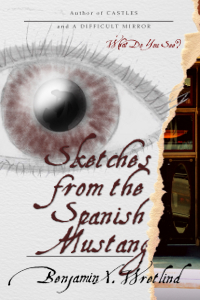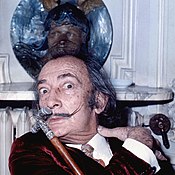I jumped deep into National Novel Writing Month this year. I had an idea during the summer for a book, and somewhere around late September, I decided to make it my NaNoMo project.
The idea: to write a parody of the bestseller Fifty Shades of Gray, but to do it better. The goal: 50,000 words by the end of November.
The process: I participated in some of the social aspects of NaNoMo, but didn’t actually do all that much other than write the story as furiously as I could.
- Before November 1, I wrote a background piece, describing the characters and outlining the plot.
Results: One Shade of Red
- I hit 50,000 words more than a week ahead of schedule — November 22. Unfortunately, I don’t yet have a complete novel. As of writing this on November 30, I’m sitting at 64,000 words or so and still have not reached the end. I have an outline for the conclusion, and yes, there’s room for a sequel. But there is no way I’m going to write a trilogy about this.
- I think my basic story is better than Fifty Shades. I have more realistic characters:
o My narrator/protagonist is a naive virgin, but there’s a reason for that: he has had a girlfriend, the “girl next door” type, since childhood, and she is fervently attached to the concept of virginity until marriage.
o His wealthy sexual mentor, Alexis Rosse, is young, but not as unbelievably young as Christian Gray: she’s 30 or 31 (a lady never tells, or so my mother used to say — actually, she still says that), and she made her fortune the old-fashioned way: she married into it.
- I also have what I like to tell myself is a better writing style than EL James, but I’ll let the audience judge that — after I finish rewriting and editing.
Work to do: I’ve exceeded the word count required for “success” in NaNoMo, but I have to flesh out the conclusion. And then, I’ll have to do at least one rewrite before turning it over to a beta reader or two and an editor. In other words, there’s at least two months more work to finish this off.
Would I do it again? I don’t think I’ll go to another “write off” event, but I would not turn down an after-party.
Something like NaNoMo is a great motivational exercise for a writer. It’s so easy to procrastinate writing a novel —you can always tell yourself that you’re waiting for inspiration or that there are other things to do. And there’s a little something called life that seems to get in the way of writing novels.
I enjoyed National Novel Writing Month this year. I think I’ll do it again next year. But I’m not going to wait for it: I’m going to continue writing every day, and get as many stories out of my brain and onto the computer screen as possible.
How many of you participated in NaNoMo or NaNoWriMo 2012? Did you succeed?


































